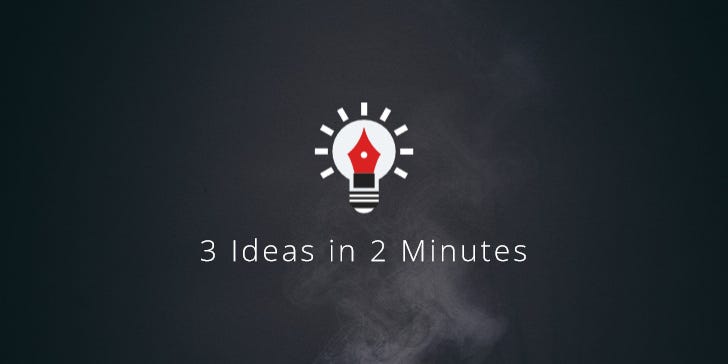#165: Sunk Cost Fallacy, Serial Escalation & Labelling
3 Ideas in 2 Minutes on Things Escalating Quickly
I. Sunk Cost Fallacy
Persistence is a virtue. Until it becomes a vice. The Sunk Cost Fallacy (aka Escalation of Commitment) refers to the temptation to continue investing in a failing endeavour even when it would be rational to cut losses and change course. The main reason is that we’ve already committed so much money and time. We erroneously think we can recover the costs by pouring more resources into the project.
On a related note, beware of the St. George in Retirement Syndrome and the Law of the Holes. Sometimes it’s best to cut your proverbial losses and let go.
II. Serial Escalation
Serial Escalation is a storytelling trope commonly found in serial TV or film productions:
Some series push themselves up and over the top, surpassing the bar they just set themselves a few episodes ago. Then they do it again. And again. And again.
This isn't meant to be confused with the buildup to season finales or a plot climax, but rather a consistent escalation in events that always exceeds what a viewer would expect. When this is done well, a new Moment of Awesome is, at any given moment, just around the corner. When done poorly, what would constitute as a Moment of Awesome can feel ordinary, or even absurd.
If you’re wondering about examples, think of the Fast & Furious franchise and wonder no more. Even though they may have managed to push Serial Escalation so far beyond the absurd, it has started being entertaining again.
III. Labelling
Labelling is a negotiation technique that works well as a de-escalation tactic. Negotiation expert Chris Voss describes it like this:
A Label is a communication technique by which you identify emotions or sentiments you believe are evident in a negotiation that have not yet been verbally expressed.
Labels begin with phrases like It looks like…, It sounds like… and It seems like…
—Chris Voss, Negotiation 9
Say you sense a certain amount of infuriation in your business partners. You’d label this emotion by saying something like, “It seems like you’re not happy at all about where our little street racer franchise is going.” If done right, your counterparts feel heard. They may even elaborate on what’s behind the anger. The situation is at least somewhat defused — until you release Fast & Furious 11. 🐘
Have a great week,
Chris
themindcollection.com

